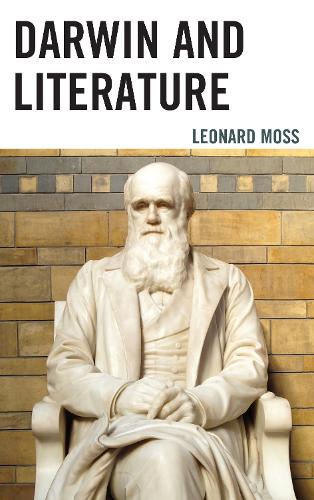
Darwin and Literature
(Hardback)
Publishing Details
Darwin and Literature
By (Author) Leonard Moss
Bloomsbury Publishing PLC
Lexington Books
25th June 2014
United States
Classifications
Tertiary Education
Non Fiction
Evolution / Evolutionary biology
809.9336
Physical Properties
Hardback
188
Width 162mm, Height 240mm, Spine 18mm
404g
Description
Although their vocabularies differ, biologists, biblical authors, and playwrights describe the paradox that Charles Darwin outlines in The Origin of Species (1859) when he observed the coexistence of a drive for permanence and a contrasting capacity to modify, deviate from, or transform established identities. The Torah; Books of Ecclesiastes, Job, and Matthew; and plays by Shakespeare, ONeill, and Beckett embody a convergence of constancy and change. Their principle literary mechanismstheir challenge-response narrative design, rhetorical repetitions, and metaphorical associationstranslate a biological contradiction into a moral dilemma that leads to recurring Darwinian outcomes. An evolutionary process becomes the template for the progressions and problems of belief systems transmitted by masterpieces of Western literature. Surprisingly, most biblical writing celebrates an outcome entirely consonant with the narratives of evolution. This study deals primarily with characters and their communities in biblical and tragic texts who toil mightily, usually with limited success, to integrate the certainty of inherited dogma with the originality of useful change. Through this study, the author concludes that Darwins insight can expand an understanding of literature, and literary analysis will support Darwins insight.
Author Bio
Leonard Moss has written books on Arthur Miller, Joseph Conrad, literature and evolution, and tragedy and philosophy. He edited the journal of the Rhode Island Jewish Historical Association in Providence from 1998 to 2004.
